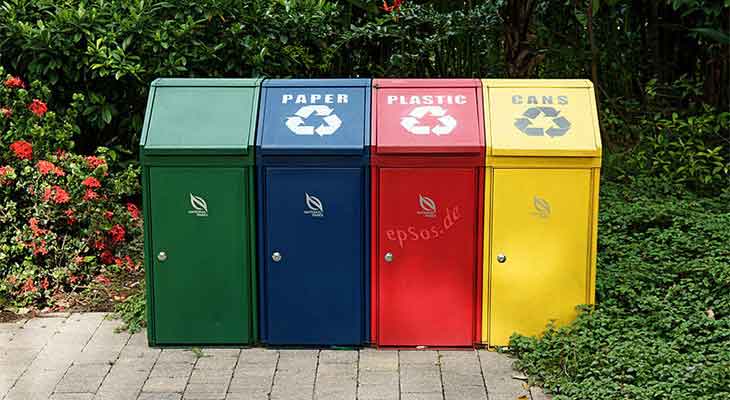Is Recycling the Most Effective Way to Manage Waste?
by Blake Harris
Posted on 16-01-2024 09:13 AM

In our increasingly environmentally conscious world, waste management has become a critical issue. With the growing concern over climate change and resource depletion, it is essential to evaluate the effectiveness of various waste management strategies.
Recycling is often hailed as a key solution, but is it truly the most effective way to manage waste? This article explores the significance of understanding the concept of reducing, reusing, and recycling, with a focus on the importance of upcycling.
The Three R's: Reduce, Reuse, and Recycle
Before delving into the effectiveness of recycling, it is crucial to grasp the concept of reduce, reuse, and recycle. This hierarchy represents a sustainable approach to waste management, emphasising the importance of minimising waste generation in the first place.
Reduce
The first step in waste management is reducing waste at its source. By consuming less and making conscious choices, such as buying in bulk or opting for products with minimal packaging, we can significantly reduce the amount of waste produced.
Reducing waste not only conserves resources but also decreases pollution and energy consumption associated with production and disposal.
Reuse
The second step involves finding ways to reuse items instead of discarding them. This includes:
- Repairing and refurbishing products
- Donating them to others in need
- Repurposing them for alternative uses
Reusing items extends their lifespan and reduces the demand for new products, thereby conserving resources and reducing waste.
Recycle
Recycling is the third step in the waste management hierarchy and involves converting waste materials into new products. It is an important process that helps conserve resources and reduces the environmental impact of extraction and manufacturing.
Through recycling, materials such as paper, plastic, glass, and metal can be transformed into new products, reducing the need for virgin materials and minimising landfill waste.
The Effectiveness of Recycling
Recycling plays a crucial role in waste management, but it is important to recognise its limitations. While recycling significantly reduces the amount of waste sent to landfills and conserves valuable resources, it is not a panacea for all waste-related problems.
Here are some key factors to consider:
Limited Material Types
Not all materials can be easily recycled, and the recycling process varies depending on the material. For instance, certain plastics are more challenging to recycle than others, and some composite materials cannot be effectively recycled.
This limitation highlights the importance of reducing and reusing materials before resorting to recycling.
Energy and Resource Consumption
Recycling requires energy and resources, including:
- Transportation
- Sorting
- Processing
While recycling reduces the demand for virgin materials, it still consumes energy and emits greenhouse gases during the recycling process. Thus, it is crucial to prioritise the first two steps of the waste management hierarchy—reduce and reuse—to minimise overall environmental impact.
The Importance of Upcycling
Upcycling goes beyond traditional recycling by transforming waste materials into products of higher value or quality. It involves creative thinking and innovation to give discarded items a new lease on life.
Upcycling offers several benefits:
1. Resource Conservation
Upcycling allows us to use waste materials in their current form without requiring significant energy-intensive processes. By repurposing items creatively, we can extend their lifespan, reduce waste, and conserve resources.
2. Environmental Impact Reduction
Upcycling helps decrease the need for new materials, reducing the strain on natural resources and energy consumption associated with extraction and production. It also minimises the amount of waste sent to landfills or incinerators, thereby reducing pollution and greenhouse gas emissions.
3. Promotion of Creativity and Innovation
Upcycling encourages innovative thinking and creativity. It fosters a mindset that views waste as a valuable resource and promotes the development of unique and sustainable products.
Final Thoughts
While recycling is an essential component of waste management, it is crucial to understand and prioritise the concept of reduce, reuse, and recycling. By implementing these three R's in our daily lives, we can significantly reduce waste generation and conserve resources.
Additionally, embracing the concept of upcycling allows us to go beyond traditional recycling methods and find creative solutions to repurpose waste materials. By adopting a comprehensive approach to waste management, we can collectively contribute to a more sustainable and environmentally friendly future.